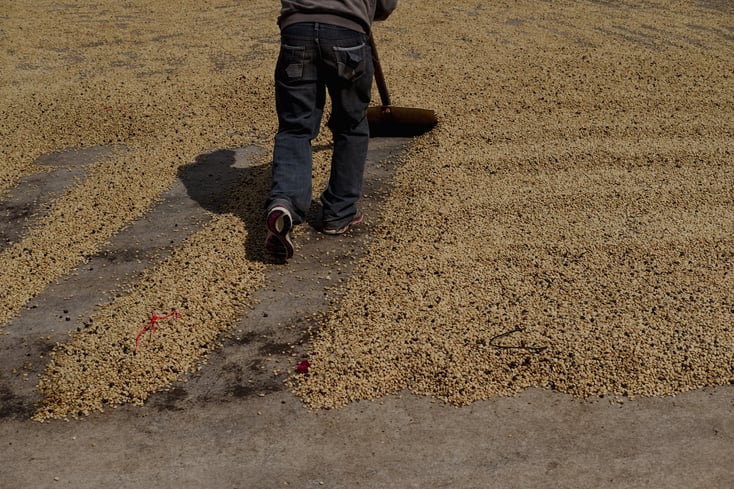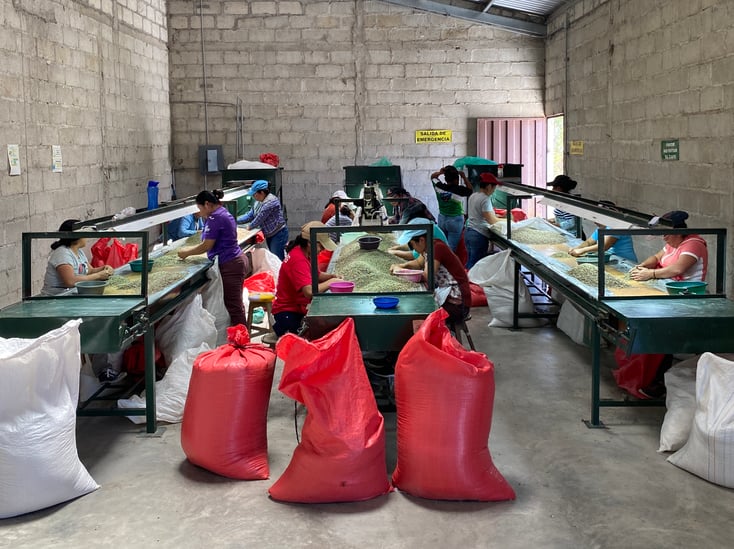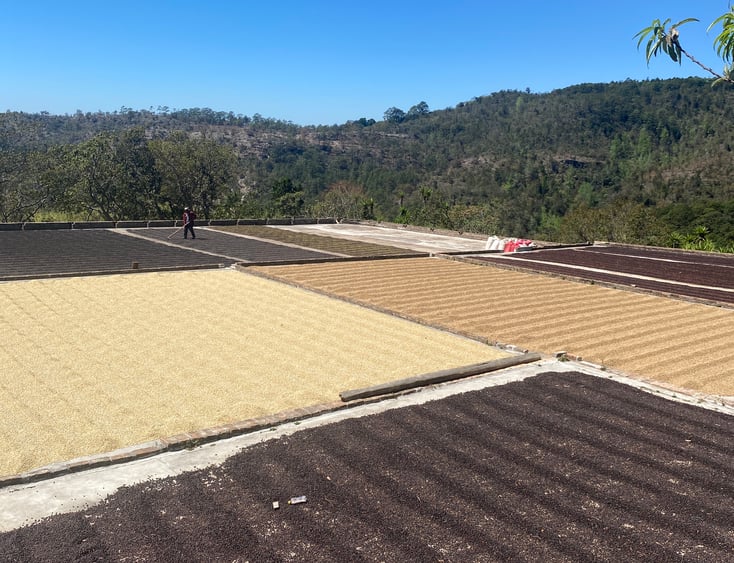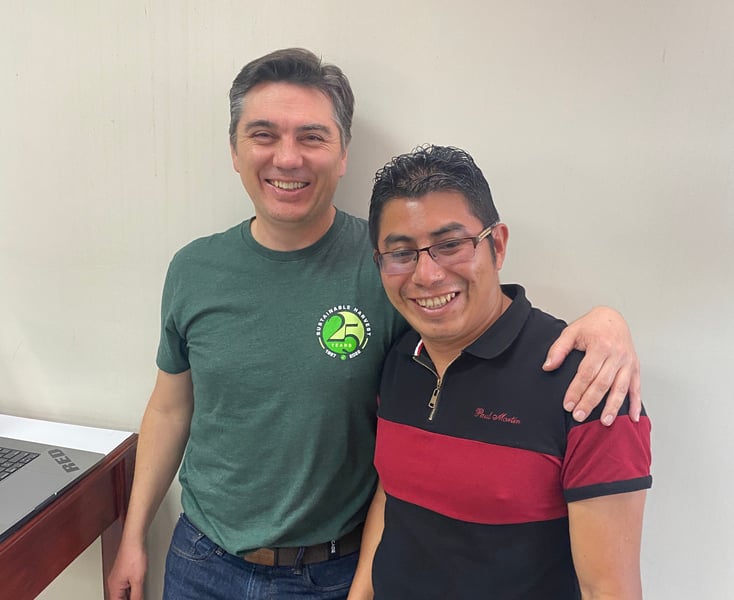
It is generally accepted among coffee professionals that Honduras is the "value origin" of Central America. But we're seeing that change. On a recent visit, I spoke directly with producers to gain an in-depth understanding of their plans and goals and a holistic view of the state of coffee production in Honduras.
________________________________________________
Honduras has long been known as a producer of low-cost, average-quality coffees. Decades of chronic underinvestment in processing facilities near coffee production areas meant most inventories were held in large commercial mills in lowland regions. These locations' warm and humid climatic conditions were never conducive for specialty coffee.
To Honduras' credit, once they were labeled the "commercial coffee source" in Central America, they doubled down and invested in quantity over quality, quickly becoming the region's largest producer, and not by a small margin.
While Guatemala was trailblazing with regional profiles in the late 90s and Costa Rica and Panama were well underway to becoming "boutique" origins, Honduras remained steadfast in its approach to volume production.
The Specialty Coffee waves began to take shape, bringing with them seismic shifts in how countries positioned themselves in the global marketplace. Honduras is blessed with ideal coffee growing conditions, which, combined with entrepreneurial spirit and visionary community-based producer associations, resulted in a fundamental evolution for coffee production. The boom of social and environmental certifications in the early 2000s further accelerated the country's presence in the Specialty market.

Honduras's commitment to productivity also meant the country was far ahead in incorporating disease-resistant varieties (variants of Catimor) compared to any other country in the region. This "Catimorization" was cited by many skeptics in the specialty arena as further proof that the country was stuck in its volume-first, quality-second approach and was doomed as a legitimate entrant into high-quality circles. Then, the Roya outbreak of 2014 happened, and it changed everything. Legendary origins like El Salvador essentially disappeared from global coffee relevance. Classic farms of Genuine Antigua with heirloom Bourbon varietals were wiped out entirely. And yet, Honduras, while not completely unscathed, rebounded faster than any other country in the region.
With this renewed confidence, the country's coffee sector consolidated as an engine of innovation and prosperity. Honduras annual coffee quality competitions and auctions became a must for any specialty coffee buyer. Regions like Santa Barbara and Marcala deployed as badges of honor in coffee labels the world over.
And yet, the coffee sector cannot escape the broader environment in which it operates. Cities in Honduras are plagued with gang violence and crime; poverty is palpable, and the social headwinds are strong. Stories of Central American immigrants flooding the U.S. border are a daily occurrence in American newscasts. They are fearmongering about an "illegal invasion" hitting fever pitch by those seeking to sow division and discord.

As I walk the coffee fields in the highlands of southern Honduras, I ask growers about their greatest challenges. I have been asking this same question for over 20 years, and the answer has added new layers over time. In the late 90s and early 2000s, it was all about price and market access; 10 years on, climate change was added as a critical concern.
Today, everyone I talked to cited a lack of access to workers. Emigration is real, and it touches all elements of life in present-day Honduras. Virtually any family I talked to has a close relative, friend, or neighbor who has decided to seek better opportunities somewhere else. Lack of jobs and the rising cost of living are cited as the leading reasons for emigrating, particularly among youth.
This brings us to the economics of coffee. For the 23/24 harvest, the average farmgate price in Honduras has dropped 13% compared to the previous crop cycle. Total production is also down, roughly 20% by some estimates. It does not take much analysis to realize the coffee farmers' quandary: Lower prices, lower output, and higher costs to retain the scarce workers available—not a recipe for prosperity.
And yet, the next generation of coffee growers remains undeterred. They are keenly aware of their parents' hard work and sacrifice to give them an opportunity at a better life. With very few other economic opportunities, coffee holds entire communities together, and its viability is of paramount importance.

It is now becoming clear to the younger generation that generic, commodity-style commercial coffee growing is not the path for a better future, especially for smallholder producers. Social and environmental certifications certainly help, and adding science-based innovations in production and processing may actually be the recipe that can bring sustained prosperity to Honduras coffee regions.
With the economic odds stacked against them, the next generation of Honduran coffee growers has chosen to stay home and fight for the survival of their communities. Incorporating new coffee varietals, implementing regenerative agricultural practices, introducing water and energy-saving processing technologies and maintaining a clear vision for the future has enabled a viable path forward.
________________________________________________
Amidst a plethora of challenges, the coffee growers of Honduras remain strong and resilient. As sunset approaches and I walk on a dusty trail back to town, surrounded by coffee trees and all the life surrounding them, I can't help but share in their optimism. For the rest of us in the coffee industry, let's do our part and join the next evolution of Honduras coffee.
If you want to explore some of our incredible Honduran offerings or pre-book some beans from this country, reach out to your Relationship Coffee Manager!



.png)
